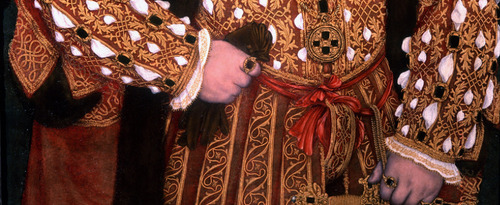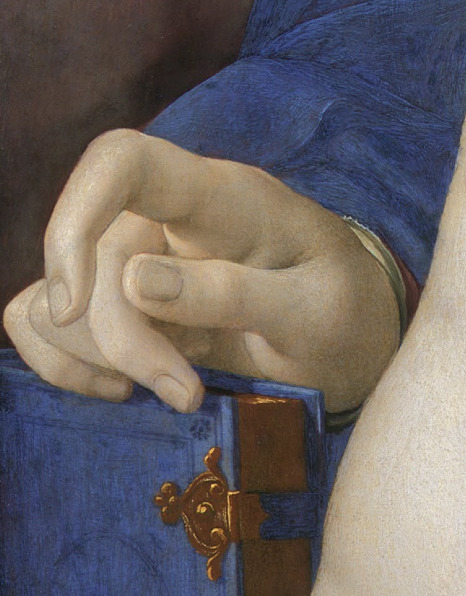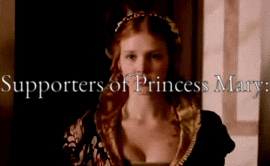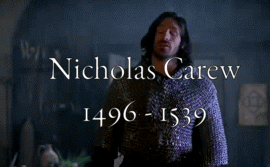#nicholas carew
Explore tagged Tumblr posts
Text
The Conspiracy to Destroy Anne Boleyn

By spring of 1536, Henry VIII's passion for Anne Boleyn had soured into hatred. The son he had expected had turned out to be another worthless daughter, and Anne had miscarried of a son in January. The quick mind and spirited personality that had attracted him to Anne in the first place were now starting to irritate him. He was experiencing problems in the bedroom, which - knowing Henry's personality - he likely blamed on Anne. He wanted a placid, submissive wife now, and he had his eye on a woman who seemed to embody those very qualities: Jane Seymour.

But it had taken Henry seven long years to rid himself of his first wife, Katharine of Aragon. Anne was just as stalwart as Katharine, and as well-versed in Scripture. She also had powerful and wealthy supporters in the religious reformist movement, and quite a few of the new bishops owed their appointments to her efforts. Like Katharine, Anne deeply loved her daughter and would fight to her last breath to preserve Elizabeth's rights to the throne. Henry was in no mood for a protracted legal battle and another inconvenient ex-wife causing him grief.

But invalidating his second marriage might tacitly confirm the pope had been right to say it wasn't legal, and Henry couldn't have that. Chapuys noted Henry's predicament:
[T]he King would have declared himself earlier, but that some one of his Council gave him to understand that he could not separate from the Concubine without tacitly confirming, not only the first marriage, but also, what he most fears, the authority of the Pope.

Divorce also left his future marriage to Jane questionable. There were people who never accepted his marriage to Anne while Katharine still lived. Princess Elizabeth was considered a bastard by conservative Catholics, born of a bigamous relationship. Henry didn't want anyone to question the legitimacy of the heir he was certain he would father with Jane.
There was only one conclusion ...
Anne must die.

Thomas Cromwell later admitted he was the main architect of the plot against Anne. He had to have started working on it in April, 1536 - possibly earlier, but likely around then, because they needed to move fast in order to catch Anne and her supporters unaware.

Cromwell was a religious reformist himself, but he was the king's man first. His primary duty was to get Henry whatever he wanted - to find a "legal" way to obtain his desired end, that is. And Cromwell was extraordinarily good at his job.
Anne and Cromwell had worked together in the past, but lately, tensions between them had increased. On the 1st of April, Cromwell told the Imperial ambassador, Eustace Chapuys, that Anne would like to see Cromwell beheaded. Whether he was speaking with hyperbole to try to curry favor with Chapuys, or whether relations between Cromwell and Anne had really gotten so strained, is unknown. Cromwell's behavior during that meeting was odd. Chapuys describes him saying the king intended to live chastely within his marriage and then going over to the window to put a hand over his lips, as though to conceal a smile. Cromwell was not a man who had trouble concealing his emotions, and so he was definitely trying to send Chapuys some sort of message in this meeting.

One of the main sticking points between Cromwell and Anne was that Anne wanted the funds from the dissolved monasteries to go toward founding schools. Cromwell and the king wanted it to go to the royal treasury. Guess who won that particular dispute? Anne also favored an alliance with the French, and German religious reformers; Cromwell was courting the Emperor and a renewed friendship with the Spanish. But although their interests were beginning to diverge, the first mention of any hostility between Anne and Cromwell is this meeting with Chapuys.

Some scholars have put the entire conspiracy on Cromwell's shoulders, making Henry an innocent dupe of the false accusations against the queen, but I doubt that highly. Henry's own behavior illustrates plainly that he was in on the plot, and cheerfully indifferent to the fate of his wife. (Contrast his behavior during Anne's fall with how he reacted to the fall of Katheryn Howard for ample proof.) Henry said he wanted rid of his queen, and Cromwell supplied a way to make it happen.

Anne likely knew something was stirring. In January, Chapuys had written that the king had said he felt his marriage was invalid because he had been tricked into it by the promises of soothsayers ("sortileges") that Anne Boleyn would bear him a son. In late April, Chapuys reported that the Bishop of London had been asked whether the king's marriage to Anne might be found invalid. (The Bishop wisely responded he would only give his answer to the king himself, and only if he knew in advance what answer was wanted.) Henry was testing the waters.

Jane Seymour's supporters also knew the queen's days were numbered. Henry had already been speaking to Jane of their future marriage, even before Anne's arrest. Chapuys writes at the end of April that Nicholas Carew was daily conspiring with Jane toward the queen's ruin.
The Grand Esquire, Master Caro (Carew), was on St. George's Day invested with the Order of the Garter, in the room of Mr. De Bourgain, who died some time ago. This has been a source of great disappointment and sorrow for lord Rochefort [George Boleyn], who wanted it for himself, and still more for the concubine, who has not had sufficient credit to get her own brother knighted. In fact, it will not be Carew's fault if the aforesaid concubine, though a cousin of his, is not overthrown (desarçonee) one of these days, for I hear that he is daily conspiring against her, and trying to persuade Miss Seymour and her friends to accomplish her ruin. Indeed, only four days ago the said Carew and certain gentlemen of the Kings chamber sent word to the Princess to take courage, for very shortly her rival would be dismissed, the King being so tired of the said concubine that he could not bear her any longer.

Cromwell seems to have operated under the concept of "Go big, or go home." The plot against Anne had to destroy her reputation utterly, and leave the king's honor spotless. As a result, Anne could not be charged with mere adultery, because then people might laugh at the king for having a wife who preferred another man's caresses to his own. No, she had to be a depraved monster of lust, whose carnal appetites were so all-consuming that she would seduce her own brother to satisfy them. That's why so many men were accused with her, along with Mark Smeaton, whose inclusion was meant to show how truly depraved she was. She would even sleep with commoners!

Cromwell also seems to have used the case against the queen to solve some pesky problems he had on his desk. William Brereton, for example, was involved in a dispute over some land with one of the lords of the privy council, and standing in the way of Cromwell's governmental reforms in the north. Cromwell was killing all of his inconvenient birds with one stone.

Henry was kept aware of the progress of the plot. Chapuys reports that all-day council meetings ran late into the evening. Anne was also getting very nervous. On the 26th of April, she met with her chaplain, Matthew Parker, and made a special request of him. She asked him to watch over her daughter, Princess Elizabeth, if anything were to happen to her.

But Anne couldn't have known what was in store for her. Likely, she suspected Henry was trying to get his ducks in a row for an annulment suit, or put her under a state of perpetual house arrest, as had been done with Eleanor of Aquitaine. She would never have suspected what Henry actually had in mind. No queen of England had ever been executed.
On May 2nd, Anne Boleyn was arrested and charged with adultery and treason.
138 notes
·
View notes
Photo




Supporters of Princess Mary Tudor: Sir Nicholas Carew
“It will be matters concerning the said Princess, of whom the said Esquire has always shown himself a most devoted servant.”
Sir Nicholas Carew was born c.1496, and in his youth was a renowned jouster known for his fearless, rakish attitude. Best friends with King Henry VIII since a child, in 1515 he was given his own tilt-yard at Greenwich Palace. He held a number of prominent titles at court - Master of the Horse, Esquire of the King and more, and in 1536 joined the esteemed Order of the Garter. Though a distant cousin to Anne Boleyn through their ancestor Thomas Hoo, he disliked her and was a firm supporter of Queen Catherine and Princess Mary along with his wife Elizabeth.
Nicholas, Elizabeth and Mary exchanged letters throughout her exile from court, and in September 1534 Mary would be questioned about them by order of the King. The following year, on the 25th of July Nicholas sheltered and hid King Henry’s fool, who had spoken well of Catherine and Mary before calling Anne Boleyn a ribald and her and Henry’s daughter Elizabeth a bastard. There is speculation the reason Nicholas protected him was due to him having coached the fool to say it.
Nicholas was one of the chief supporters among the Seymour faction at court, counselling other conspirators and instructing Jane Seymour on how to act to attract Henry’s attention. In 1536 while Anne’s downfall was plotted Jane moved to one of Nicholas Carew’s houses where Henry VIII could visit without suspicion.
On the 25th of April Nicholas sent to Mary to tell her to “be of good cheer, for shortly the opposite party [will] put water in their wine, for the King [is] already as sick and tired of the concubine as could be.”
After Anne Boleyn’s death and Henry’s subsequent marriage to Jane, Nicholas and Mary continued to send letters to each other. Nicholas now urged Mary to submit to the King, with the expectation of her being reinstated as heir to the throne.
After Mary signed the articles declaring her a bastard she was restored to her father’s favour and returned to court. In December Mary became godmother to Nicholas and Elizabeth’s child. Privy Purse accounts reveal Mary sent gifts to her goddaughter as well as the child’s nurse, while Elizabeth frequently played cards with Mary. In September of 1537 Nicholas sent Mary a buck as a present.
In 1538 several of Mary and Nicholas’s friends were arrested due to their involvement in the Exeter Conspiracy, a group allegedly aiming to install Reginald Pole on the throne with Mary as his wife. At first Nicholas was questioned in the hope of obtaining evidence against his friend Henry Courteney, Marquess of Exeter, however soon the investigation turned to his own involvement in the case; a Carew family legend states that King Henry had turned against his former friend due to an argument during a game of bowls. During a search of Nicholas’s houses for evidence of treason, a letter of his talking of conversations held in the kings chamber was discovered. This ‘proof’ led to him being arrested on the 31st of December and taken to the Tower. On the 14th of February 1539 he was found guilty, and beheaded on the 3rd of March.
His death after the executions of Henry Courtenay, Henry Pole and Edward Neville, led Spanish Ambassador Eustace Chapuys to remark that “It would seem they wish to leave her (Mary) as few (devoted servants) such as possible.”
Mary would never forget his loyalty, and shortly after becoming Queen in 1553 she reversed her father’s attainder. This granted his only son and heir Francis the lordships, manors and land stripped from the family upon Nicholas’s death.
34 notes
·
View notes
Text

9 notes
·
View notes
Text
Whilst Mary's and Elizabeth's supporters nailed their colours to the mast, Richmond's activities give little clue as to his inclination. At the Chapter of the Order of the Garter held in April 1536, Richmond voted both for Anne's brother, Lord Rochford, and for Sir Nicholas Carew, who was no supporter of the Boleyns. His action probably reflected the mood of much of the court as they waited to see which way the die would fall.
The Life and Political Significance of Henry Fitzroy, Duke of Richmond, 1525-1536. (Murphy, A. Beverley)
#henry fitzroy#george boleyn#nicholas carew#see...i like that she says 'elizabeth's supporters'#it's sort of been presupposed she had none; always#she didn't have 'supporters' insofar as those that would fight for her claim to the throne in the immediate aftermath#of may 1536; certainly but that was due mostly to the destruction of her maternal family and the king's will re: the succession#when elizabeth was an infant; the boleyn supporters/ partisans were by extension her own#we even have william glover circa 1533 saying he had had a vision delivered by an angel that she should be 'princess of the land'#once she was reinstated into the succession and edward became king it set the groundwork#she did have supporters to her claim while edward was king and even more when mary was queen#henrician
7 notes
·
View notes
Text
March 8, 1539: Execution of Sir Nicholas Carew
On March 8th, in 1539, Sir Nicholas Carew was taken to Tower Hill and beheaded for treason. He had been convicted of being part of a conspiracy that involved that Marquis of Exeter, Baron Montagu, Cardinal Reginald Pole, and other members of the Pole family, based on a letter that had been found at the Marchioness of Exeter’s house which implicated him.
Sir Nicholas Carew was born sometime around 1496, and was the eldest son of Sir Richard Carew of Beddington, Surrey, and Maline Oxenbridge. He was raised at court and by 1511, he was serving King Henry VIII as a Groom of the Privy Chamber. In 1515, he became an Esquire of the Body, and by 1518, he was a Gentleman of the Privy Chamber. His married Elizabeth Bryan, the daughter of Sir Thomas Bryan, the Vice Chamberlain of Queen Katharine of Aragon, and Lady Margaret Bryan, who was the governess to the Princess Mary, and later the Princess Elizabeth. Carew was also close friends with his brother-in-law, Sir Francis Bryan.
Carew was a distant cousin to Queen Anne Boleyn, but they were not close, and in 1535, Carew provided shelter for the King’s fool, who had angered Henry by calling Anne Boleyn “a ribald” and the Princess Elizabeth “a bastard.” By sheltering this man, Carew showed that he sympathized with the Catholic faction, and Katharine of Aragon and the Lady Mary. It is also thought that Carew is one of the men that helped coach Jane Seymour on how to attract and keep King Henry’s attention when he was still married to Queen Anne Boleyn, thus making him complicit in Anne’s eventual downfall and execution.
When Henry married Jane Seymour, and Jane gave birth to Prince Edward in October of 1537, Carew was given the honor of being in charge of the baptismal font at Edward’s baptism. And when Queen Jane died a few days later, his wife, Elizabeth, was chosen to be one of the ladies that took part in her funeral. Carew remained a royal favorite until his arrest on December 31st, in 1538.
Sources:
Erickson, C. (1984). Mistress Anne. New York: Summit Books.
Ridgway, C. (2012). On This Day in Tudor History. MadeGlobal Publishing.
Starkey, D. (2003). Six Wives: The Queens of Henry VIII. New York City: HarperCollins Publishers.
Weir, A. (1996). The Children of Henry VIII.
Weir, A. (2001). Henry VIII. United States: Random House, Inc.
Weir, A. (n.d.). Six Wives of Henry VIII.
Whitelock, A. (2009). Mary Tudor: Princess, Bastard, Queen. New York: Random House .
#nicholas carew#anne boleyn#jane seymour#henry viii#edward vi#elizabeth I#reginald pole#Tudor History#Six wives of Henry VIII
2 notes
·
View notes
Text
Sir Francis Bryan: Vicar of Hell
Sir Francis Bryan: Vicar of Hell
Image used of unknown man Born about 1490 to Margaret Bourchier and Thomas Bryan, Francis was the oldest of two surviving children. His sister, Elizabeth was married Nicholas Carew. Through his mother he was related to Anne Boleyn and this is most likely why he helped to promote Henry’s matrimonial causes with the French and papal courts. His mother, Margaret Bourchier was half-sister with…
View On WordPress
0 notes
Text
Knight of the Shire for Surrey: Hate when people say I’m lurking in the shadows when I’m just chillin
9 notes
·
View notes
Quote
When he (Nicholas Carew) brought news to the Marquis (Henry Courtenay) that the late queen Jane was delivered of a son, the Marquis showed himself very melancholy; which I believe was only on account of the love he bears to the Princess, in whose service he would willingly, as he has often sent to tell me, shed his blood.
Eustace Chapuys, 9th January 1539
9 notes
·
View notes
Text
Mary’s allies #5 - Nicholas Carew
Nicholas Carew was born around 1496, and in his youth was one of the best friends of the future King Henry VIII. He distinguished himself particularly in the lists, with Hans Holbein later painting a portrait of himself in full armour (See below). Nicholas gained a reputation as a “reprobate”, leading to Thomas Wolsey labelling him and the rest of Henry’s closest friends as “youths of evil counsel”. Despite this, his absence from court was not long, and in July 1522 he was promoted to Master of Horse. After this he was often sent on diplomatic missions to France, becoming highly regarded by Francis I.

A distant relative to Anne Boleyn through their common ancestor Lord Thomas Hoo, as Anne rose in favour Nicholas too remained close to the King. In June 1531, as Henry publicly left Catherine of Aragon to spend the summer with Anne, Eustace Chapuys noted that:
“He (the King) had already left Windsor and other places to pass the time, having only in his company the lady (Anne Boleyn), the master of horse (Nicholas Carew) and two others”.
As early as 1532 however, Nicholas began to turn away from Anne and actively work against her, reporting news to Spanish Ambassador Chapuys:
“The Marchioness of Exeter has sent Chapuys a letter, not signed, but either from her husband (Henry Courtenay) or the Grand Esquire (Nicholas Carew) saying that he had heard from Gregory Casale, who has been negotiating with cardinals Grammont and Tournon, whom the two Kings are sending to Rome, that one of their principal charges is to summon the Pope to declare immediately that the divorce should be pronounced.”
This continued over the next years, with Nicolas meeting Chapuys in person in 1534 to tell him that:
“I have learned from the Master of the Horse that when the Lady began to complain of the said young lady, because she did not do either in word or deed the reverence she expected, the King went away from her very angry, complaining of her importunity.”
The King’s anger would also flare a year later; in July 1535 it was reported that “the King wishes to kill his fool because he spoke well of the Queen and Princess. He has been banished from Court.” Nicholas later sheltered the fool in his own home, leading to speculation that he had coached the man into saying his personal thoughts.
Despite working against the King, Nicholas was still rising high, receiving a position in the Order of the Garter “to the great disappointment of Rochford (George Boleyn), who was seeking for it, and all the more because the Concubine has not had sufficient influence to get it for her brother.”
Indeed, while he rose higher then his cousins, he was actively promoting the rise of Henry’s third wife - Jane Seymour in 1536. Chapuys wrote to Charles V that Nicholas “continually counsels Mrs. Semel (Jane Seymour) and other conspirators”. As well as encouraging Jane on how to gain the affections of the King, Nicholas was also encouraging Princess Mary. He sent her a message “to tell the Princess to be of good cheer, for shortly the opposite party would put water in their wine, for the King was already as sick and tired of the concubine as could be.”
Shortly after this, he was arrested and interrogated in the Tower of London with several others. Sir Anthony Browne is recorded as saying in his examination that:
“Mr Carow. showed him lately that he had received a letter from the lady Mary, as he supposes, and thereupon decl[ared] that Mr. Secretary had written a letter [to] her, advising her to submit to th[e King], and showed him that she would so do, [as] he understood; whereupon the said Sir An[thony] prayed God to give her grace so to [do]; whereunto the said Mr. Carowe said, if [she will] not submit herself she is undone, for the King is a merciful prince, and [will] take pity of her, if she will now l[eave her] obstinacy, and cast not herself away.”
While he was released shortly after and even played a prominent part in Prince Edward’s christening in 1537, it would not be long before he was arrested again - and this time he would not be so lucky. On the 31st of December 1538 “the Grand Escuyer, master Caro, was taken prisoner to the Tower, and the moment his arrest was ordered commissioners went to seize all his goods in his houses.”
He was suspected of being part of the Exeter conspiracy - a so-called plot to remove King Henry VIII from the throne and replace him with Princess Mary, who would marry Edward Courtenay or Reginald Pole - two men who carried distant royal blood in their veins. The King himself stated in a letter that “by the Cardinal's counsel, his brother Montague and Exeter conspired to destroy the King and Prince and the ladies Mary and Elizabeth, and usurp the whole rule” and “after their execution it was found, by their letters, that Sir Nich. Carew was one of the chief of that faction.”
Eustace Chapuys was told that “the cause of the Escuyer's arrest was a letter found in the coffer of the Marchioness, by which he informed her of some conversations held in the King's chamber; also that the principal thing that had been required of him since his imprisonment was to testify something against the Marquis.”
Nicholas clearly cooperated, as Chapuys later notes “I am told that, in the hope of pardon, he had already revealed several things against both himself and the Marquis; but nothing has been specified.”
Nicholas’s loyalty to Princess Mary was clearly still evident, as “if any letter of the said Escuyer is found in the possession of the said Marchioness it will be matters concerning the said Princess, of whom the said Escuyer has always shown himself a most devoted servant.”
It is generally agreed the evidence that led to Nicholas Carew’s death was weak, and over-exaggerated to get rid of one of the Princess’s chief supporters. At his trial on the 14th February 1539 it was stated that “said Marquis [Henry Courtenay] at that or other times sent divers traitorous letters to the said Carewe from Westhorseley which the said Carewe traitorously received, which letters they afterwards, to conceal their treason, traitorously burnt.”
Despite his plea of not guilty, Nicholas was found guilty of high treason against the King. On the 3rd of March he was beheaded. In a letter dated the 8th of March, John Butler wrote “Nic. Carew, late master of the Horse, was brought to punishment. As he was led to execution, he exhorted all to study the evangelical books, as he had fallen by hatred to the Gospel.”
With his death, yet another of Princess Mary’s close friends was lost to her, a man who had never stopped fighting for and believing in her and her right as Henry’s heir. As Chapuys stated, “It would seem they wish to leave her as few [devoted servants] such as possible.”
6 notes
·
View notes
Quote
I am told the cause of [Nicholas Carew's] arrest was a letter found in the coffer of the Marchioness [Gertrude Courtenay], by which he informed her of some conversations held in the King's chamber. [...] I know not what letters of mine could have been there for I never wrote any to anyone in this realm that I would not like published, except to the late good Queen and to the Princess, who would take good care to burn them. And seeing that of late, they wished to blame the said Marquis [Henry Courtenay] and others executed because they had found no letters in their possession, saying that they had burnt them lest the wickedness therein contained should be discovered, it might easily be suggested that I had several times written to the Princess. To avoid that suspicion I have sent her a dozen letters which she can show if necessary; and for my part I should like if some occasion offered for the King to see and read them.
Eustace Chapuys to Charles V, 9th January 1539
#👀 what did he write#i love how he just really didn’t care about insulting henry lol#nicholas carew#henry courtenay#gertrude courtenay
4 notes
·
View notes
Quote
There is absolutely no proof of a conspiracy: the White Rose party were working on no sort of plan and had come to no definite agreement between themselves. [...] They were less a political party than a group of friends, who loved the old Faith, hated Cromwell, and longed for a change in policy. They met and talked treason and sang political songs in the Marquis's [of Exeter] garden at Horsley, and in the woods at Bockmore. They did not trouble themselves about anything so strenuous and intellectual as a plot. The King's version of the matter, that Exeter meant to seize the Crown and slay the entire royal family, was simply ridiculous, considering that he had no one to help him but Mary's especial friends.
The Pilgrimage of Grace 1536–1537 and the Exeter Conspiracy 1538, Volume 2, by Madeline Hope Dodds and Ruth Dodds, 2015 page 311
4 notes
·
View notes
Text
Most prominent among Jane's advisers was Sir Nicholas Carew, in whose home Jane lodged while the King secretly paid court to her. On 29 April 1536, Chapuys claimed that Carew 'continually counsels Mrs Semel and other conspirators...and only four days ago he and some persons of the chamber sent to tell the Princess to be of good cheer.' Another intimate of the King whose religious conservatism had put him in opposition to the Boleyns was Francis Bryan. A public spat with Anne's brother George had severed any ties to the family, and it was Francis who brought Jane the news that Anne had been condemned in May 1536.
‘Bound to Obey and Serve’ (2014), Lauren Johnson
3 notes
·
View notes
Quote
Only four days ago he [Nicholas Carew] and some persons of the chamber sent to tell the Princess to be of good cheer, for shortly the opposite party would put water in their wine, for the King was already as sick and tired of the concubine as could be.
Eustace Chapuys to Charles V, 29th April 1536
3 notes
·
View notes
Quote
I think that if any letter of the said Exchequer (Nicholas Carew) is found in the possession of the said Marchioness (Gertrude Courtenay) it will be matters concerning the said Princess, of whom the said Exchequer has always shown himself a most devoted servant. It would seem they wish to leave her as few such as possible.
Eustace Chapuys, 9th January 1539
3 notes
·
View notes
Quote
About the time that the King's council had sent to her [Mary] to Hunsdon, [Nicholas Carew] sent for me to his chamber at Westminster, bidding me welcome, saying that the cause he sent for me was for that he did know I did give my heart and service to her for her mother's sake, and he showed me a letter of his own hand to her, wherein he besought her for the love of God, and so in likewise did all her friends here desire her to follow the King's desire, and they were sure that his Majesty was minded at that Parliament to make her heir apparent till God should send his Majesty other issue. At which time I made answer, I durst not except I did know my Lord's pleasure, then being secretary [Thomas Cromwell], who bade me not fear for he would show him his self, saying that he was sure Master Secretary would give a hundred pounds that she would consent. And so thereupon I went with his letter to her Grace, who showed me that her Grace had received the same day a letter from his wife by her servant.
Anthony Roke interrogation, 1539
#i'm guessing this was september 1534#because elizabeth carew sent a letter to her then#nicholas carew#elizabeth carew
2 notes
·
View notes
Quote
Mr. Carow [Nicholas Carew] showed him [Anthony Browne] lately that he had received a letter from the lady Mary, as he supposes, and thereupon declared that Mr. Secretary [Thomas Cromwell] had written a letter to her, advising her to submit to the King, and showed him that she would so do, as he understood; whereupon the said Sir Anthony prayed God to give her grace so to do; whereunto the said Mr. Carowe said, if she will not submit herself she is undone, for the King is a merciful prince, and will take pity of her, if she will now leave her obstinacy, and cast not herself away.
Sir Anthony Browne’s examination, 1536
1 note
·
View note